Are Hot Showers Bad For You? The Potential Effects on Skin and Health
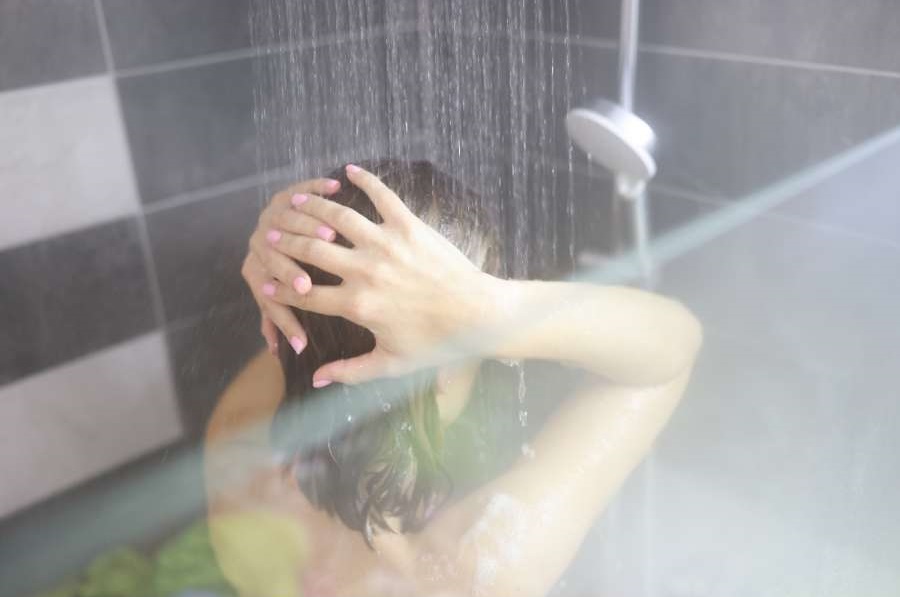
In the comfort of our homes, few rituals are as cherished as the daily shower. For many, a nice steamy shower is the ultimate way to start the day, relax after a long day, or wind down in the evening. But behind the misted shower doors lies a question worth pondering: Are hot showers bad for you?
In this blog post, we’ll explore whether hot showers are bad for you. We’ll look at some of the latest research on how shower heat affects hydration, skin health, hair condition, and more. By the end, you’ll understand the main considerations around hot shower safety and health impacts.
The Allure of Hot Showers
The allure of a hot shower on a cold morning or after a long day is undeniable. The warmth envelops the entire body, easing muscle soreness, reducing inflammation, and seemingly washing away the day’s stresses. Scientific evidence based on the relaxing benefits of hot showers suggests they can mimic the effects of a heating pad, targeting stiff joints and aiding in muscle fatigue recovery. But while our body craves this warmth, could it be doing more harm than good?
Understanding Your Skin Health
Skin, our body’s most outer layer, is more than just a protective covering. It’s a complex organ responsible for retaining moisture, regulating body temperature, and serving as a barrier against environmental aggressors. The skin’s health is crucial for our overall well-being, with its natural oils and moisture barrier playing a key role in keeping our skin hydrated and happy.
The Health Benefits of Hot Showers

Hot showers can provide various health advantages. Here are some of the potential benefits:
Improved Heart Health
- According to a review of hydrotherapy published in 2014, hot water bathing can potentially enhance blood flow in those with chronic heart failure, thanks to the natural widening of blood vessels when exposed to heat.
- A 2012 study found that soaking the feet and lower legs in warm water for 30 minutes reduced arterial stiffness, a risk factor for high blood pressure and atherosclerosis.
Relief for Muscles and Joints
- By increasing blood flow, hot showers may help relax stiff, sore muscles and joints, as shown in one study. Alternating hot and cold water therapy may also dampen pain and inflammation.
- The study found that applying localized heat or cold to the knee provided a small decrease in pain and improvement in function for those with osteoarthritis.
Benefits for the Brain
- Hot water immersion boosts the production of brain-derived neurotrophic factor (BDNF), a protein vital for nerve cell growth, learning, and memory.
- A 2018 study found a single hot bath increased BDNF levels more than a warm bath.
Better Sleep
Hot baths before bedtime are recommended by the National Heart, Lung, and Blood Institute. Hot baths promote sleep by initially relaxing the body and then allowing the body temperature to drop afterward.
The Drawbacks of Hot Showers on Skin
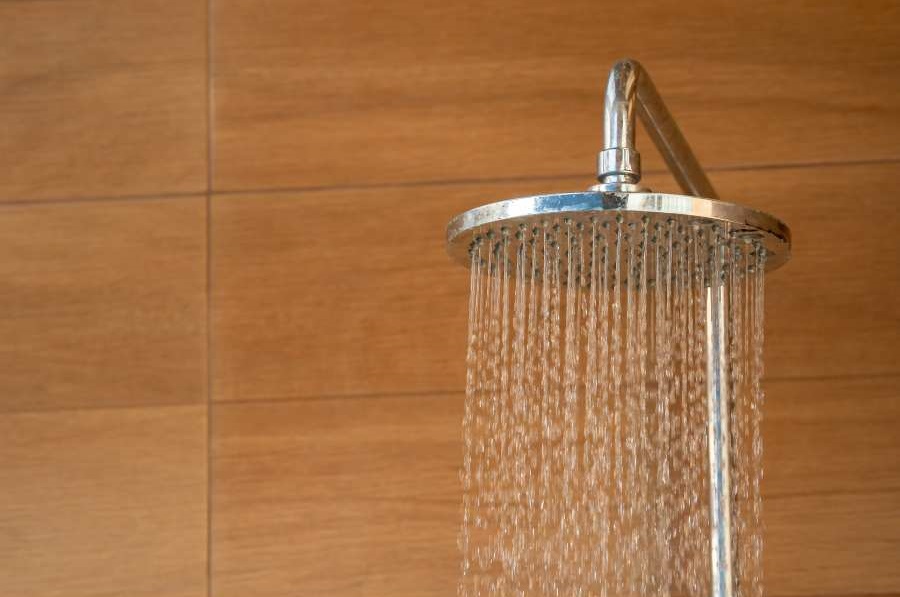
Hot showers or hot baths, while soothing, can have several adverse effects on skin health:
Dryness and Irritation: Hot water can strip away the skin’s sebum layer, leading to dry skin and irritation. This creates dry skin conditions that are uncomfortable and lead to itchy skin and visible flaking.
Aggravation of Skin Conditions: For those suffering from skin conditions like eczema, psoriasis, or rosacea, frequent hot showers can exacerbate symptoms, causing redness, additional irritation, and discomfort.
Heat Damage: Prolonged exposure to hot temperatures can weaken the skin’s natural balance, affecting the keratin cells in the epidermis and making it difficult for the skin to retain its moisture. This can lead to a compromised moisture barrier, leaving the skin vulnerable to further damage.
The Temperature Debate: How Hot is Too Hot?
So, just what is the perfect temperature for a shower? Dermatologists often recommend lukewarm showers as the best option for maintaining healthy skin. Lukewarm water—neither too hot nor too cold—helps retain the skin’s natural oils and moisture without causing the thermal shock that hot or cold showers can induce. A warm shower that feels comfortable to the touch, typically around 98°F to 100°F (37°C to 38°C), is considered ideal for keeping your skin happy and hydrated without compromising on comfort.
Protective Measures and Alternatives
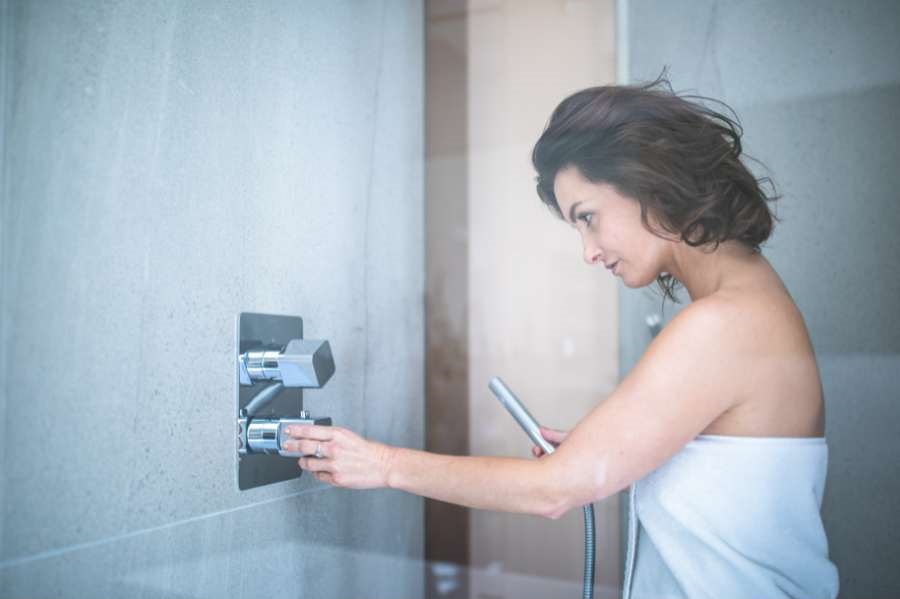
While the allure of a hot shower or hot bath remains, there are ways to reduce the negative impacts without forgoing the comfort and relaxation they provide.
Shortening Shower Time
One of the simplest yet most effective measures is to reduce the duration of your showers. Limiting time spent under hot water can significantly decrease the risk of skin dryness and irritation. A daily shower lasting no longer than 5-10 minutes is sufficient for maintaining cleanliness and skin health, minimizing the exposure of your skin’s outer layer to potentially damaging hot temperatures.
Moisturizing Immediately After
To counteract the effects of hot water on the skin, it’s crucial to moisturize immediately after showering. Applying a quality moisturizer helps to lock in moisture, restoring the skin’s natural barrier and aiding in retaining moisture. This practice is particularly beneficial for those with dry skin or conditions like Eczema, where the skin’s ability to hold moisture is compromised.
Alternating Temperatures
Incorporating the practice of alternating between cold and hot showers, known as contrast showers, can offer several benefits. This method invigorates the skin, stimulates blood flow, and can aid in muscle recovery. Beginning with a warm shower and ending with a cooler temperature can help close hair cuticles and pores, potentially reducing muscle soreness and promoting skin health.
Personal Care Tips for Hot Shower Enthusiasts
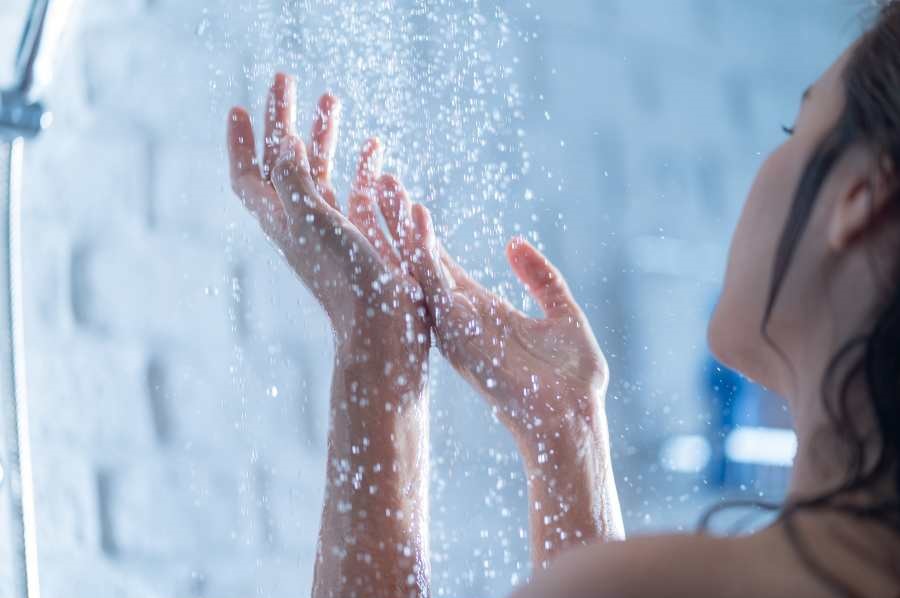
For those who find solace in the warmth of a hot shower and are reluctant to give up this daily ritual, there are ways to mitigate the adverse effects:
- Use Gentle Soaps: Choosing mild, moisturizing soaps can help preserve the skin’s natural oils and moisture barrier, reducing the risk of dry skin and irritation.
- Install Shower Filters: Hard water can exacerbate skin dryness and irritation. Installing a shower filter can help remove minerals and chlorine, making the water gentler on your skin.
- Pat Dry, Don’t Rub: After a shower, gently pat your skin dry with a towel instead of rubbing, which can further irritate the skin.
- Hydrate: Drinking plenty of water throughout the day helps maintain skin hydration from the inside out, complementing the efforts to keep the skin moisturized externally.
By incorporating these measures, enthusiasts of hot showers can continue to enjoy the comforting embrace of warm water while minimizing potential skin damage and maintaining skin health.
Cold Shower vs. Hot Shower
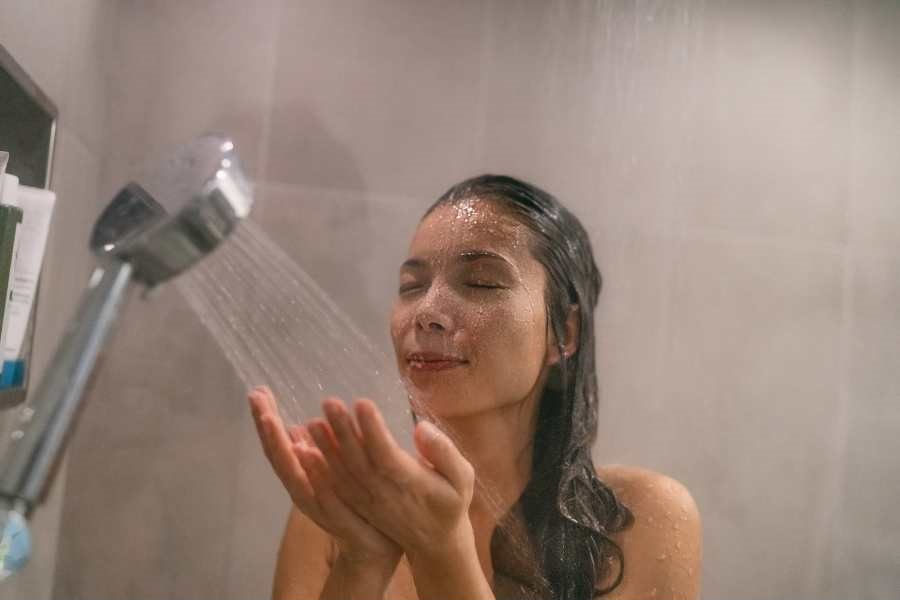
The debate between a cold or hot shower is more than just a matter of preference; it’s a discussion deeply rooted in the effects each has on your mind and body. To provide a well-rounded view, let’s also consider the benefits and challenges of taking a cold shower compared to taking a hot shower.
Cold Showers
Cold showers have long been associated with potential health benefits, from awakening the senses to enhancing circulation. The shock of cold water on the body can lead to increased blood flow, a natural response as the body maintains its core temperature. This heightened circulation may reduce inflammation, ease muscle soreness, and even boost the immune system by stimulating white blood cells.
Also, a cold shower can have significant effects on mental health. The initial shock followed by the adaptation process can potentially increase mental fortitude, reduce stress levels, and alleviate depression symptoms. This is done by triggering a flood of mood-boosting hormones. Cold showers can also help close pores and tighten hair cuticles, potentially leading to healthier skin and hair.
Hot Showers
On the flip side, hot showers offer unmatched relaxation and comfort, particularly after a long day of intense physical activity. Hot water soothes stiff muscles, eases joint pain, and potentially treats respiratory symptoms by opening nasal passages. The therapeutic effects of a hot shower may also extend to mental relaxation, providing a tranquil environment to unwind and de-stress.
However, as discussed, frequent hot showers can strip the skin of its natural oils, leading to dryness, irritation, and the exacerbation of certain skin conditions. The key lies in moderation and protective measures such as moisturizing and limiting shower time.
Striking the Right Balance
Finding the right shower temperature balance can be tricky. While steamy hot showers are blissful, and cold showers offer circulation perks, is there an ideal middle ground?
Ideally, aim for a lukewarm yet comfortable shower. Gently pat the skin dry and apply a moisturizer afterward for hydration and keep your skin healthy. This caters to all skin types.
For variation, try a contrast shower technique. Flip the water from cold to hot, spending 1 minute at each extreme temperature. Repeat this quick cold-hot cycle 3-5 times.
The cold water causes vessels to constrict, driving blood flow inward. Then, hot water dilates vessels rapidly, spurting blood flow back out. This essentially “pumps” blood through the body, assisting regeneration and detoxification, according to Gerrit Keferstein, MD.
So consider blending refreshing cold bursts with just enough heat to stay cozy. This balancing act leverages the benefits of both shower temperatures for circulation and healthy skin while mitigating drawbacks like moisture loss. Develop a routine that works for your body.
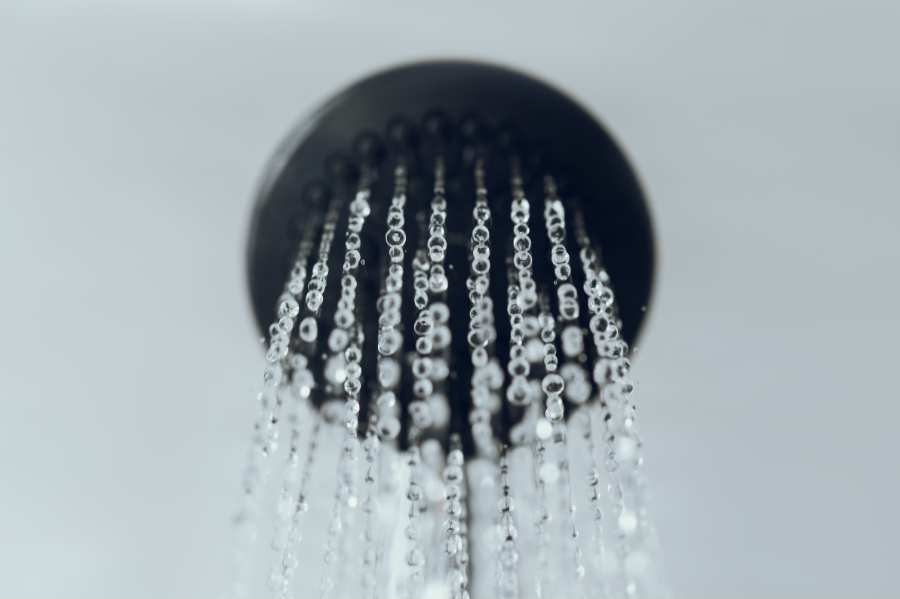
In Summary
Hot showers balance therapeutic comfort and potential skin health detriments. While the bliss of standing under a stream of hot water is hard to resist, prolonged exposure can disrupt the skin’s delicate moisture barrier, leading to dryness, irritation, and even increased skin conditions.
The experts weigh in with moderation in mind – limiting shower times, lowering temperatures to lukewarm rather than scalding hot, and moisturizing after to counteract drying effects. With some thoughtful tweaks to shower temperature and post-shower skin care, we can continue to enjoy the ritual while minimizing risk. For those set in their hot shower ways, being mindful of skin changes and incorporating gentle soaps and shower filters can go a long way toward getting wet safely.
With some care and compromise, we can have our hot showers – and our happy skin too.